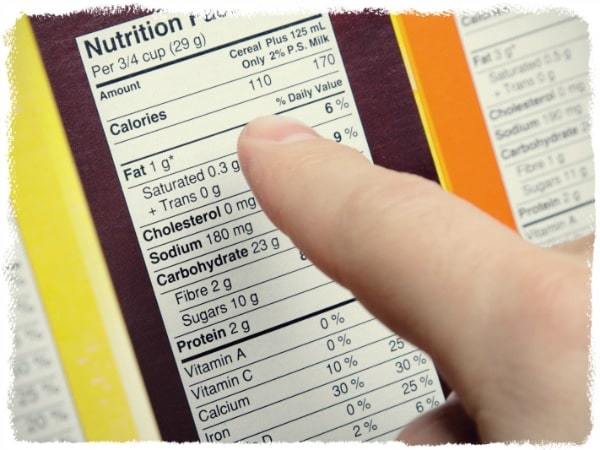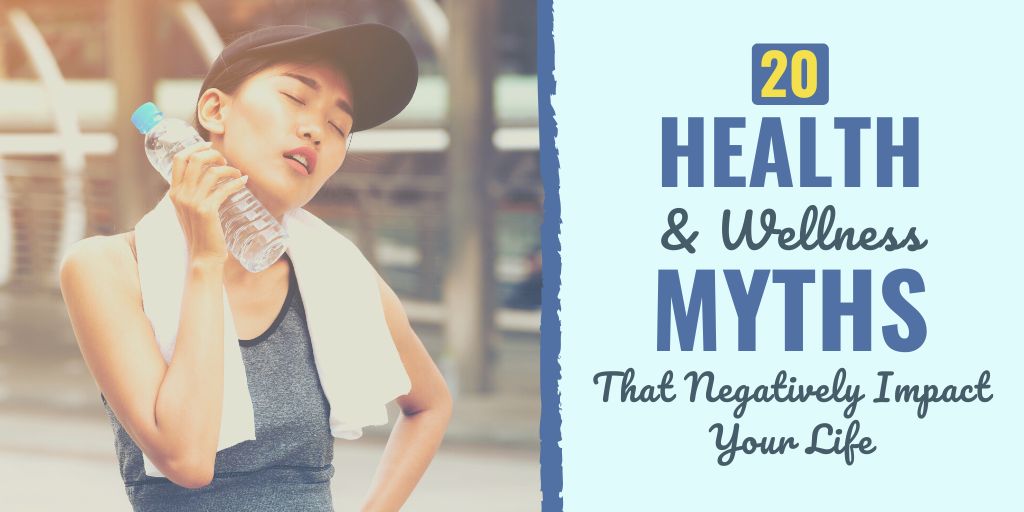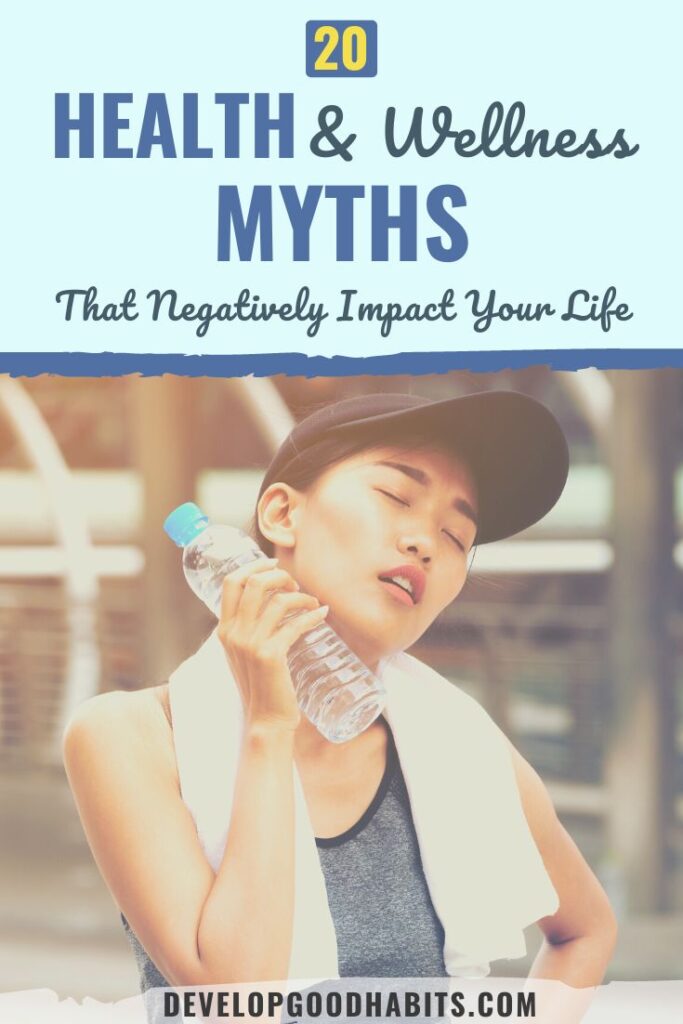There might be affiliate links on this page, which means we get a small commission of anything you buy. As an Amazon Associate we earn from qualifying purchases. Please do your own research before making any online purchase.
Keeping healthy well-being is essential to everybody. We struggle almost every day to achieve the desirable body; exercising, eating the right kinds of food with the exact amount of nutrients.
However, while striving every day, we can hear convincing myths about health and wellness. To give justice to whether it is a fact or purely fiction, in this article can help you develop good habits of maintaining your healthy well-being.
Why do people get persuaded easily?
According to an assistant professor at the Johns Hopkins School of Medicine, Zackary Berger, M.D. He utters that myths stick to people’s minds because we adhere to biases we already have in the first place.
Often we only select and choose details that are matching to what we already believe or what we want to think.
Thus, one of the influencers that are convincing people is through social media. We tend to agree based on what we see or hear through our accounts.
We adhere even to what people share with their posts though it declares no scientific acclaim. It doesn’t also gather a strong research background, but we always react as if it has.
This article will list the 20 common myths as well as give a proper reason why it turns out to be pure fiction.
Before we proceed, if you're looking to improve your life, take a few minutes to watch the video below and learn how to create a healthy morning routine.
20 Health and Wellness Myths Debunked
1. Eating at night can affect weight gain.
There is nothing wrong with eating at night, as long as you are aware of the food you are eating. It does not matter when you will eat. But, it merely depends upon your eating habits as long as you don’t surpass the amount of your daily calorie intake.
If you are not mindful of what you eat during nighttime, you often eat everything depending upon your cravings. You do it without considering the calories you are taking, then you can expect to gain weight.
Thus, you can reach for vegetables and fruits if you experience hunger before going to bed. When choosing for food, pick those that are less in sugar concentrations to keep your blood sugars from spiking.
2. Eating fat makes you fat.
In reality, we need a moderate amount of fat in our body to become healthy. It provides the diet with flavor and satiety to make you feel fuller.
This kind of fat that people eat called the “dietary fat” is among the three vital macronutrients from which your body can obtain energy. Thus, people should instead include a moderate amount of healthy fat to daily diet meals.
3. You are healthy if you are skinny.
One of the common misconceptions that people believe is that if someone saw a person look skinny, then that person is a healthy individual.
Individuals hold fat differently. Being skinny is not a precise measurement of how healthy a person. Poor nutrition and physical inactivity can boost the risk of acquiring diseases such as heart disease.
Although solid fitness requires some work and discipline, exercising is an essential routine to become healthy.
4. Clear urine is a definite indication you are hydrated.
While keeping an eye on your urine color, it can provide a measure of how hydrated you are or even dehydration.
Having a pee the same as to the color of an apple juice or darker, means you need to drink up more water. But, clear urine is excessive. It is not the type of urine you are looking for, but a pale yellow in the cast.
It is essential to consider that the kinds of food and drinks you are taking such as coffee, juices, and any diuretics can affect the shade of your pee.
5. Eight glasses of water is a must to consume every day.
A general rule of thumb: Probably, you can hear most of the people say you have to take eight glasses of water each day.

Many variables, including how active you are, your health, and where you live, can affect the need of your body for water. While there are situations where water demands are increasing, there is no need for healthy males and females to consume water in such significant amounts.
Moreover, realizing more about your body’s need for liquids will assist you in estimating how much water consumption you will need every day. The intake of water differ every person, and you thirst should guide your use.
6. You are dehydrated when thirsty.
Thirst is a way that your body tells you to drink water. If you feel quite thirsty, you are not automatically in extreme danger of becoming dehydrated. It could be a sign of a 1 percent decrease in your overall water in the body. Thus, you should drink some fluid.
The body is extremely good at controlling the proportion of water to make sure it is in equilibrium. Moreover, for ideal liver and kidney function, drinking enough water is essential.
7. There is no such thing as ‘too much water.’
Although a rare situation, overhydrating can be dangerous.
Drinking too much can cause diseases in the body, such as hyponatremia. It is a condition wherein sodium concentrations in the body diluted that the cells start to swell. The state can show symptoms of nausea, headache, vomiting than can escalate to coma.
Thus, this situation does not mean you don’t have to drink water when you are thirsty. Instead, you have to drink water according to your body’s need. It requires large quantities to cause the so-called water overdose.
8. Drinking coffee dehydrates you.
It does not dehydrate you when you drink, but only if you overdo it. Taking 500 milligrams or more of caffeine a day, or about three to five cups of coffee, may bring you the risk of dehydration.
Whereas caffeine is dehydrating, coffee water is more than compensating for the effects, eventually leaving you hydrated. It is essential to regulate the intake of caffeine as too much can lead to damage in your health.
9. Diet soda better than regular soda.
Diet soda includes fewer calories than the regular one, and while managing your weight and dental hygiene, diet soda appears to be a great option at first glance. Even so, the former contains more unseen and dangerous ingredients than the latter that an individual cannot think.
Artificial sweetener is present in the diet soda that can damage your body as well as the teeth. Your body will crave more sugar since it is not an exact ingredient, and end up eating more calories than needed.
Either way, there is no better soda. The regular one if consumed regularly and over lengthy periods, you will get a 20 percent risk of having a heart attack. It is also more prone to generate osteoporosis, asthma, and cavities of the tooth.
As both diet and regular soda can lead to risk in health, considering the regulation of drinking, it is essential to prevent unwanted conditions to happen.
10. Carbohydrates make you fat.
Among the three main building blocks are carbohydrates. It is part of the macronutrients together with the fat and protein. These three are vital for the body’s functioning properties.
All those foods that people call rich in carbohydrates contain a combination of all the three types of carbs: starch, sugar, and dietary fiber. Thus, they all work together along with protein and fat.

While there are a lot of carbohydrates that you should and should not eat, there are certain foods, of course, that have more nutrients than the others. Thus, not all carbs can make you fat most, especially the fibrous carbs as it has the most significant overall health effect.
11. Supplements always make you healthier.
A lot of supplements are available throughout the market today with a lot of promising outcomes. For fitness, protein supplements are available to help build lean muscles.
Timing of protein consumption varies depending on your needs. There are also vitamins, dietary supplements, as well as those that target the calcium in the body.
But, there is research that found out that these supplements can cause damage and danger to one’s health, possibly long term or even through short term risks. Thus, it can put your health in possible danger.
13. Everybody must take a protein supplement.
Protein supplements nowadays are a trend most especially to gym-goers. A lot have been saying that it can help you while you build your muscles.
Some individuals may benefit from these supplements because due to specific diseases or physical activities, they have difficulty absorbing protein through eating alone. But, not all people are required to take these supplements.
Fact is, without even trying, healthy individuals get enough protein. Eating greek yogurt or even chicken breast can give you the protein you need.
Thus, to those people who are needing to take, you can compare protein powders and supplements. Some may contain unsafe substances that pose a danger to anyone considering it. Buying these powders may be costly too.
14. Egg yolks are bad for your health.
Misconception present for years, they say that dietary cholesterol is increasing the concentrations of blood cholesterol. Thus, in reality, saturated fats and trans fats are more relevant factors that can increase blood cholesterol concentrations.
Eggs are high in cholesterol. But, they have comparatively small amounts of saturated fats and trans fats. Studies show results that eggs can be part of a person’s healthy diet.
Moreover, to most people who eat it in moderation, it shows no impact on the impact of cholesterol that can cause the risk of heart disease.
15. Organic food means healthy automatically.
When we hear the term “organic,” it comes with a large health label around it. It serves as a mark wherein people think anything that has a name with that term; it automatically means it is right for you.
Reality check: organic snacks are still snacks. Excessively eating these foods is not healthy all of a sudden just because it met the criteria of being natural.
Thus, organic crackers, chocolates, chips, cookies, and sweets have the same quantities of sugar fat and refined carbs as with the non-organic foods. Eating would still mean eating with the same nutrients, but with different labels.
16. Salads are the healthiest on the menu.
Many of the people who are health conscious choose salad as they eat at any restaurant. Thinking that picking it means a safe way not to gain weight as well as achieve a healthy body.
Yes, eating those green leafy vegetables is indeed making you healthy. But, take note of all the add-ons shoveled on top of the lettuce bed.
Those toppings such as cheese, creamy dressings, bacon, or sweetened fruit can end up making the sugar, calories, and fats high in amount. Same as to the mouthwatering foods you want to resist.
Moreover, search for one with leafy greens, a small serving of fat, and lean protein to make sure your salad is healthy as possible for your body. You can also consider oil-based dressing instead of the creamy ones.

17. Fast food always makes you fat.
People believe that fast foods are unhealthy, but in fact, not all. In today’s time, people are becoming health conscious, and many of the fast-food chains are adapting to the needs of the individuals.
There are a lot of fast-food chains present today serving people based on the diet plans they are maintaining.
Thus, these chains look for alternatives to possibly get foods that exclusively focus on serving healthy foods. These may not meet every health-conscious individual’s demands. But if you don’t have the time or energy to cook a good meal, then these are good options.
18. Being in a cold setting can give you colds.
Historically, most of the individuals presumed that being in a cold environment can cause people to catch a cold. But, in today’s time and age, individuals are usually more conscious that it is just a myth. You get a cold not for staying outdoors in bad weather, but instead, you get it from a virus.
We spend more time in locked spaces indoors during cold months. Thus, having a considerable risk of sharing air and crossing paths for more extended periods with someone having the cold-causing virus. Most especially if the person infected does frequently cough or sneeze, or even sharing with the same food.
Studies discovered that cold viruses flourish in colder weather because, at average body temperature, they are less able to survive.
Having a strong immune system helps protect you from catching colds no matter teh weather.
19. Exercising will make you lose weight no matter what you eat.
There is a belief made by people that during the verge of working out, you can still burn any unplanned and unhealthy meal. Thus, to justify the heavy workout, people want to get a reward in eating something delicious.
The truth is, even the most massive workout cannot compensate for your food habits completely. Also though burning out more calories more than the consumed food, and exercising can help to burn faster those calories. But, even the most strict exercise can only cover at most one chocolate bar’s caloric value.
Moreover, a lot of fitness trainers around the globe are consistent in their view that the achievement of building a healthy body depends upon the individual’s practice and lifestyle. Thus, regular body activity should focus on 30% exercise and 70% on nutrition.
You have the authority to your own body, the kinds of food you are going to put in your plate, and the difficulty level of your workout. Knowing all these facts, it is now in your decision whether to follow or ignore it.
Understanding is essential so that later in life, you don’t want to wonder about why you are not losing weight.
20. Walking 10,000 steps a day don’t need you to do any other exercise.
This idea depends on the goals of the individual. The guideline of 10,000 steps a day aimed at preventing diseases for those who do not do regular exercises. Also, to those who have become too comfortable in our high-tech society, rather than improving health through fitness workouts.
Naturally, if you begin from a not-active phase, walking 10,000 steps every day will enhance your fitness. It can intend to add activity to your busy schedule, but it will only count as a weak aerobic exercise. It will not render the whole outcome-based practice that can replace a full workout.
Moreover, every kind of practice has its definite advantages, which is why it is not optimal to adhere only to the same intensity or method of activities. With shorter but higher intensity aerobic exercise, flexibility activities, and resistance training, you can expect efficient outcome for overall fitness.
Final Thoughts on Health and Wellness Myths
In a nutshell, there is so much advice drifting around us about what we should eat, and not eat. Same goes to our peers and to the people who are continually giving us some alleged facts about fitness and exercise guides.
Even social media provides a significant impact on these myths that are affecting the way we act and care for our well-being.
Moreover, it is essential to consider not to believe every rumor that is spreading in the open quickly. If possible, we should always try to look at the facts beyond every speculation, as well as look for scientific studies to support the said theories.
Now, if you're looking for resources to help you live a healthier life, bes sure to check out these articles:
- 57 Wellness Quotes to Build a Healthy Mindset (and Body)
- 15 Habits to Build a Healthy Daily Workout Routine
- 13 SMART Fitness Goals Examples That Will Motivate You

ABOUT THE AUTHOR: Kenny Kline is a long-time entrepreneur, fitness enthusiast, and Columbia Business School Alum, Kenny has built his career around creating high-quality, reader-focused digital brands. He focuses on health and fitness topics, especially blogs that compare protein powders and supplements.


